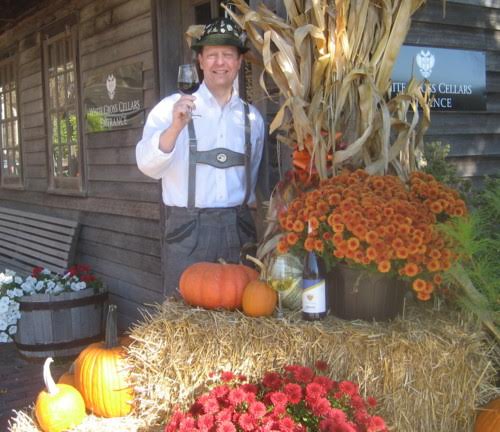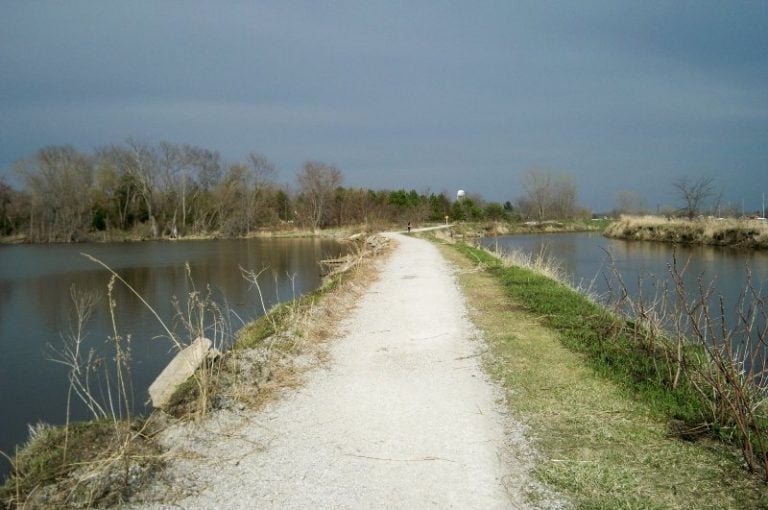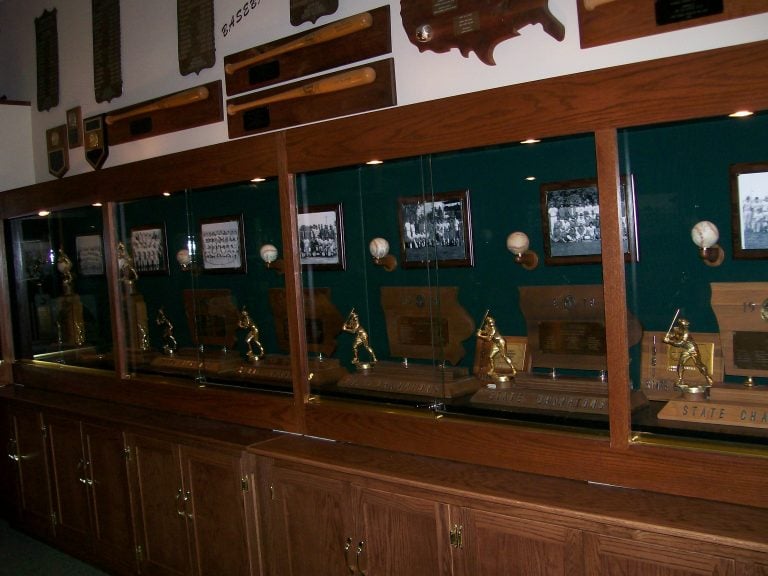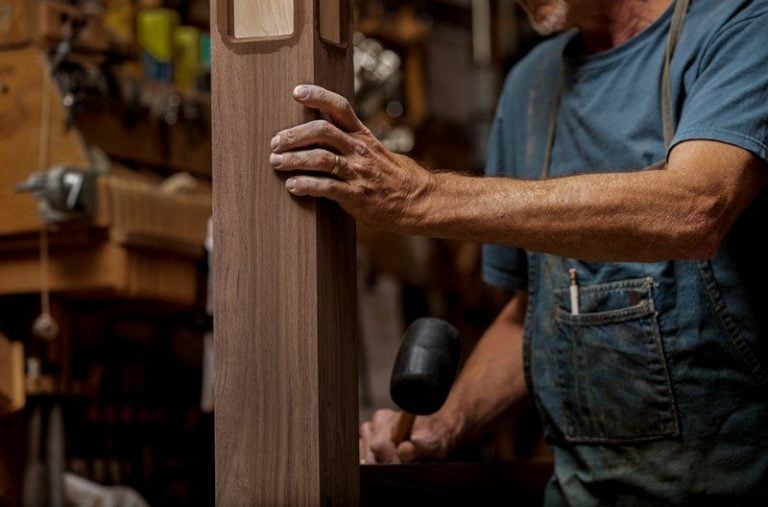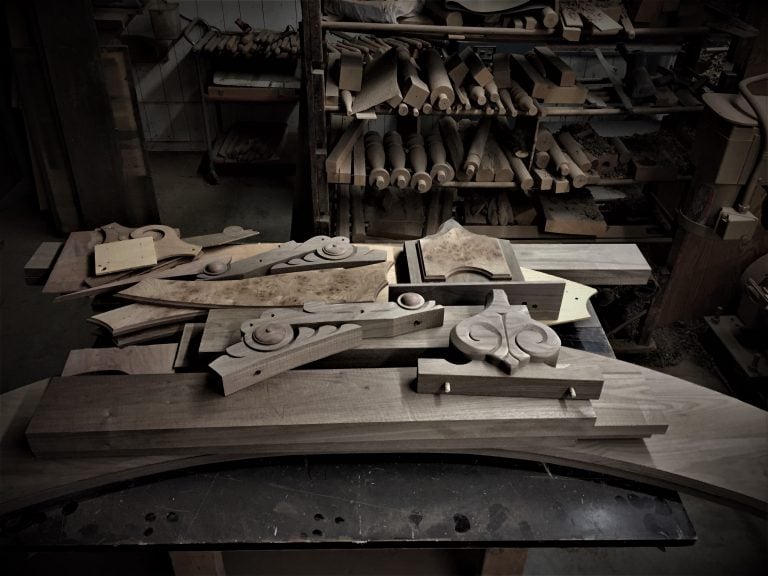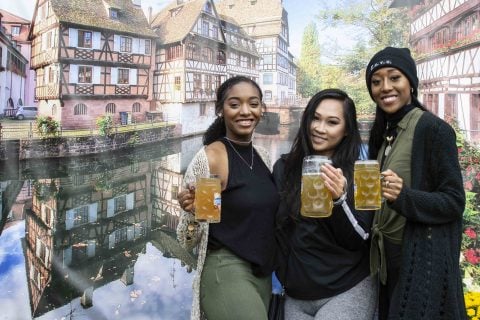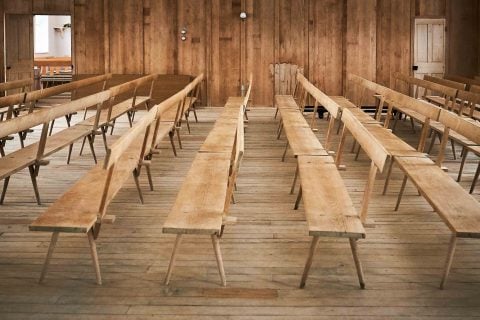You’ll notice a different look and feel to the Amana Colonies. Many of our visitors remark that it’s not like Europe but it’s not like the rest of Iowa. The architecture is certainly different. Three primary materials were used, brick, sandstone, and wood and the design of the buildings and how they were built are influenced by our German heritage. The communal era has also played a major role in the feel of the villages and has shaped the traditions, foods, and lifestyle of the residents.
Many of the businesses and attractions you’ll find in the Colonies have their roots in our communal history. These businesses are either original to the Amana Colonies or are continuing a craft that took place in communal times. Many of the items they offer are made at their shop or here in the Colonies, just ask the shopkeepers if you are looking for locally made items and they gladly point them out.
Your visit to discover our history and culture should start with the Amana Heritage Society’s Museum. You’ll discover what daily life was like during our communal era and the crafts that made the villages almost self-sufficient. After a visit to the Museum, it will be much easier for you to spot the businesses that are historic or have historic roots in the community. A little background information will make your visit much more enjoyable.
Food + History
Our food-related businesses have deep roots in the communal era. Many of our restaurants are an extension of the old communal kitchens and many of the dishes are inspired by those communal era recipes. The German influence is very evident as is the communal touch. You’ll find some dishes that you will be hard pressed to find in other places.
Wine
Wineries are a direct link to that era and while the wine is now made by private businesses and the variety is much greater its roots go back to the village winemaker and the storage cellars in the village church. The vineyards on the edge of town are gone and most of the grape trellises have been taken down from the side of the homes since most of the grapes are now shipped in from vineyards in the area and from far away. The wineries all give samples and have won many awards. Be sure to try several types.
Beer
We now have one brewery where at one time in our history we had 5. That is a statement on modern efficiency and a change in the culture. We offer more styles of beer now than in the past but being German beer making has always been part of our heritage. Prohibition put an end to it for a while but we boast Iowa’s oldest Micro-Brewery and the winner of many awards.
Meat Shop
The same can be said for the meat shop. We now have one that services all of the 7 villages and ships items to every state. During communal days each village had its own meat shop and processed their own fresh and smoked meats for the communal kitchens. You’ll find some of the same products today that our ancestors were enjoying in the 1800s.
Bakery
Our bakery is still housed in its original location in Middle Amana and is still operated by the same family that operated it prior to 1932. The coffee cakes and bread are still just as yummy as they were back in the day. The sweet treats in communal Amana where mostly made in the communal kitchens for special occasions, we now have a chocolate house to tempt your sweet tooth every day of the year. You’ll want to be sure to try some fudge.
Crafts + Furniture
Crafts like metalworking and blacksmithing were used primarily for utilitarian purposes prior to the change in 1932, today they serve that purpose along with a more artistic feel. Cutlery and outdoor art take up most of these craftsmen’s time.
The furniture and woodworking were at one time primarily made for the villagers while today our skilled woodworkers make furniture for those that are interested in the highest quality products, where the skills and techniques stand the test of time.
Our broom maker and basket weaver still practice their craft and our needlework and quilt shops carry on a tradition that was practiced in the homes for over a century and a half.
The Woolen Mill still operates and produces blankets, throws, and more in the same location it always has and while the Calico factory and the Middle Amana Woolen Mill have closed the Amana Blankets still keep people cozy on chilly nights.
Our history and culture are never too far out of sight. Sometimes you just need to know what to look for. It’s there, please ask and we will point it out.







